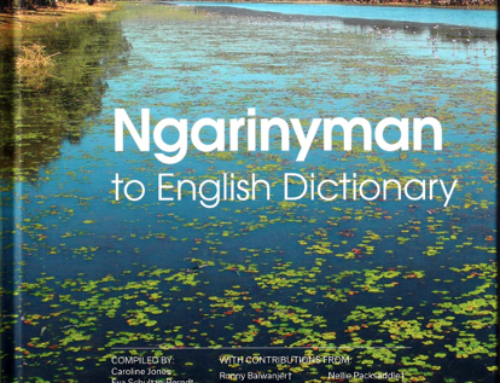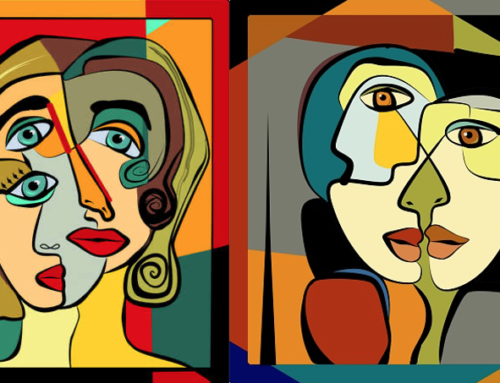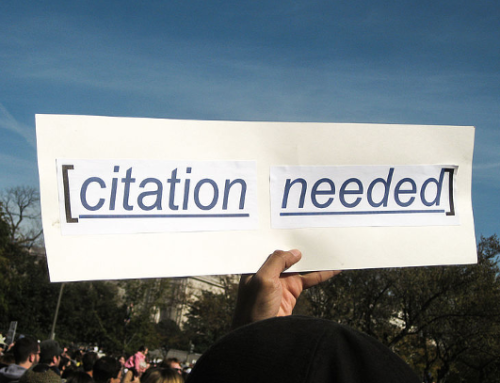Should anthropologists continue to use pseudonyms in their writings? I joined this symposium thinking that the answer would be “no.” Yet through the writing of this essay my view changed. In what follows, I share this shift of view with insights from my research among human rights experts at the UN and NGOs, and state delegates in the Finnish Ministry of Foreign Affairs (Halme-Tuomisaari 2017, 2018, 2020, 2021). This research is embedded in the rapidly proliferating anthropological work the processes of global governance, bureaucracy, expertise and documentary practices (Bear & Mathur 2015; Billaud & Cowan 2020; Brown, Reed & Yarrow 2017; Muller 2013; Niezen & Sapignoli 2017; Riles 2006, 2021).
I conclude this essay by arguing that, when studying human rights experts, international organizations, or state actors, pseudonyms are necessary in the anthropological toolkit. They allow anthropologists to navigate between the “public” and “private” (Nader 1974, 20) while simultaneously becoming the guardians of their interlocutors’ stories (McGranahan 2020, 3). Without pseudonyms it would be impossible for anthropologists to arrive at the unique analytical insights that our discipline enables.
Pseudonyms Revisited
Given the prevalence of pseudonyms in anthropological writing, it is bewildering how seldom they are systematically discussed. Few reflections were present in the seminal works on human rights and organizations that guided my doctoral dissertation fifteen years ago. For example, in The Network Inside Out, Annelise Riles utilizes pseudonyms in her analysis of a Fijian NGO without supplementary explanation (Riles 2001). In Human Rights & Gender Violence – an influential analysis of the techniques via which human rights are vernacularized in diverse contexts around the world – the late Sally Merry discusses the UN treaty body CEDAW with its real name (Merry 2006). Yet in many instances she disguises the identity of individuals.
One rare instance of candid reflection is offered by Nancy Scheper-Hughes in Saints, Scholars, and Schizophrenics (Scheper-Hughes 2002). Although she ended up resorting to pseudonyms, in retrospect she condemns their “cute and conventional use.” Instead she argues that this “time-honored practice … fool(s) few and protect(s) none – save, perhaps the anthropologist” (Scheper-Hughes 2002, 12). Indeed, in the village context where she did her research – similar to the research sites of many anthropologists – one may question whether the mere use of pseudonyms achieves the desired goal of preserving interlocutor anonymity.
In my dissertation, I opted for pseudonyms both for individuals as well as the concrete target of my inquiry, the educational activities of a network of human rights experts that I called SCANET (Halme-Tuomisaari 2010). Considering this choice today, it appears somewhat problematic. One may question whether pseudonyms achieved their purpose of protecting interlocutor identity in this case either. Networks of Nordic human rights experts are in all likelihood too small for this; it is probable that readers in the human rights field could easily identify individuals whose identities I had attempted to obscure. Simultaneously, using pseudonyms created a sense of disconnect between my research and the analysis of other Nordic human rights scholars. After all, many of these scholars were involved in the activities that I studied and wrote about. The use of pseudonyms made it impossible to have an open exchange about my analysis, subsequently marginalizing my insights in the debate.
The Inconsistent Relationship of Human Rights Scholarship and Anthropology
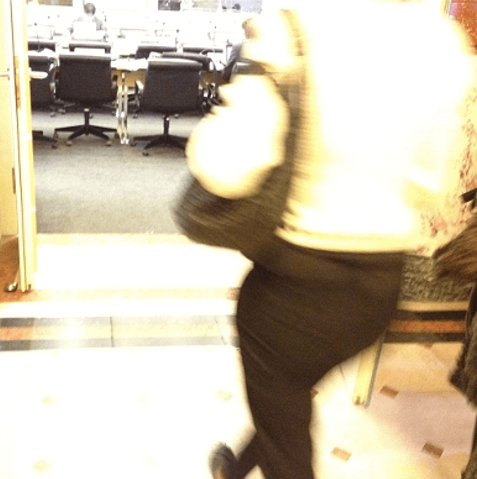
Image 1: Hallway of the Palais Wilson, headquarters of the UN Office of the High Commissioner for Human Rights and the site of UN treaty body proceedings (photo by Miia Halme-Tuomisaari)
The notion of disconnect is relevant due to particular features of human rights scholarship. Throughout the past decades many human rights experts have held multiple, overlapping roles. Often they have been activists labouring for the continually greater societal role of human rights in decision making and legislation. Simultaneously, they have been analysts who interpret the meaning of these initiatives in academic contributions (Halme-Tuomisaari 2010, Latour 2004). Many of these experts have been international and human rights lawyers. They have also been at the helm of developing the field of human rights scholarship ever since the adoption of the Universal Declaration of Human Rights (UDHR) in 1948 (Halme-Tuomisaari & Slotte 2015).
The engagement of anthropologists, on the other hand, has been notably more inconsistent. As Mark Goodale has characterized it, anthropologists were first engaged with the field around the drafting of the UDHR (Goodale 2006). This engagement included the statement by the AAA in 1947, which highlighted the difficulties of arriving at a truly cross-cultural document (AAA 1947). Anthropologists then became disengaged from human rights scholarship for decades. Many took active roles, among others, in the land rights struggles of the people they studied. Yet, anthropologists only commenced to analyze and theorize diverse elements of the contemporary human rights phenomenon in the early new millennium (Cowen, Dembour & Wilson 2001; Goodale 2006).
Importantly, in methodological terms, many international lawyers favor approaches that are perceived to be objective and scientific, such as those of economics. By contrast, methodologies embedded in non-quantifiable data may be regarded as vague and hence less trustworthy (Bianchi 2018). Many international lawyers have little understanding over the content of ethnography, even denoting it as “hanging out.” This is how one legal scholar – who was the director of a research project that I participated in – phrased the matter as I inquired into possibilities to use project funding for ethnography. The use of pseudonyms certainly contributes to these sentiments, causing anthropological scholarship to remain marginalized in the study of human rights and international organizations.
Pseudonyms as Navigation between the Private and the Public
Simultaneously, there has recently been an increasing call for the nuanced, ‘alternative’ (IHEID 2021) viewpoints that anthropology can offer. The proliferating works by anthropologists working within IOs, bureaucracy, and international law are also being noticed (Billaud & Cowen 2020; Müller 2013, Niezen & Sapignoli 2017; Riles 2021). This attention is intensified by the broader moment of introspection that characterizes many IOs as they reflect on their operational logics and organizational cultures (Halme-Tuomisaari 2019).
In these research contexts, pseudonyms serve central analytical purposes. I want to elaborate this with examples from my ethnography with human rights experts of two particular professional affiliations. The first group consists of individuals working in diverse capacities at the “Geneva human rights hub,” including members of the UN Human Rights Committee, personnel of the UN Office of the High Commissioner for Human Rights (OHCHR), and NGO delegates. The second group is personnel at the Unit of Human Rights Courts and Conventions at the Finnish Ministry of Foreign Affairs. In my research I have come in contact with these groups due to their involvement in the documentary cycles of the treaty body called the UN Human Rights Committee (Halme-Tuomisaari 2018).
The Human Rights Committee is a treaty body consisting of eighteen independent experts that monitors how states comply with the obligations that they have undertaken by becoming parties to the International Covenant on Civil and Political Rights (ICCPR) (HRC 2021). There are, in total, ten UN treaty bodies that monitor the main UN human rights covenants. These include the International Covenant on Economic, Social, and Cultural Rights (ICESCR) and the International Covenant on the Elimination of All Forms of Discrimination Against Women (ICEDAW). In the absence of a UN human rights court, treaty bodies are widely seen as the UN’s most ‘lawlike’ monitoring mechanism. Further, many view the Human Rights Committee as the most authoritative of them all (Halme-Tuomisaari 2020).
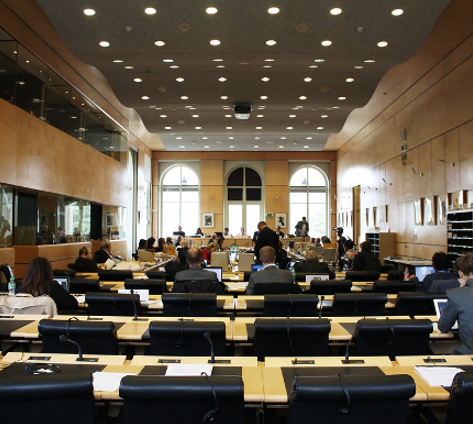
Image 2: Conference room of the Palais Wilson with a session of the UN Human Rights Committee in session (photo by Miia Halme-Tuomisaari)
The Human Rights Committee’s operations revolve around documentary cycles where state parties submit reports on their human rights conduct. These reports are then reviewed by the expert members of the Committee, assisted in diverse ways by personnel of the OHCHR. Pseudonyms are not failproof in this context. Indeed, when describing a government department consisting of no more than fifteen individuals, pseudonyms are likely to “fool few and protect none.” Although the personnel of the OHCHR or an NGO may be larger, the same reservation applies to a degree.
Yet there are other reasons for resorting to pseudonyms. These are linked directly to the professional capacity of these two groups. In human rights work individuals often do not speak in their own name. Rather they speak for organizations and governments. Further, their work builds on expectation of impersonal representation. The expectation of impersonal representation is tangibly present in the documentary cycles for the Human Rights Committee: when members of the Finnish Ministry of Foreign Affairs appear before the Committee in hearings called “Constructive Dialogue” (UN OHCHR 2021), they are expected to speak impersonally and solely as the representatives of the state. In their professional engagement they are the state (Halme-Tuomisaari 2021).
The same applies to personnel of IOs and NGOs. Whenever quoted “on record,” they are expected to represent the organization’s views alone and not share their personal opinions. Both states and IOs will have clear, formal guidelines that form an official narrative for what transpires during the documentary cycles of UN treaty bodies. These narratives will be available on state and UN websites and in the opening statements by states at treaty body proceedings – as well as shared liberally in personal interviews. These statements echo the legal fiction according to which treaty body proceedings are formally organized. Jane Cowan has discussed the same in regards to “virtuous conduct” at another UN human rights monitoring framework, namely the Universal Periodic Review (Cowan 2021).
Analytically understood, state civil servants and staff of international organizations are to speak in the “neutralizing” global language characterized by “impersonal verbal and nominal constructions” together with the “absence of identifiable authors” (Müller 2013, 9). These elements contribute toward the impression of a seemingly impartial expert discourse which further serves the purpose of “depoliticizing political issues by “neutralizing,” a process that dominant groups have used to naturalize economic inequalities” (Müller 2013, 9; Bourdieu 1982, 155). Yet the anthropologist seeks analytic insights beyond this language. She wants to understand “how international organisations involve collective and individual actors in their policy-making, absorb critique, attempt to neutralize political conflict, and create new political fields in competition and collusion with local actors and national governments” (Muller 2013, 2).
Concretely, she wants to record the subtle moments of lobbying via which the role of NGOs may be expanded in these sessions of international diplomacy, formally reserved only to members of UN expert bodies and states. She wants to join lunches and coffee break discussions where pleas for additional funding for treaty bodies are considered. She wants to follow instances where dissatisfaction is expressed via such statements as “everyone else has human rights except UN staff.” This is how one seasoned insider characterized professional circumstances that felt particularly disappointing.
Better than anyone, human rights professionals know how to draw a distinction between the mission and ideology of human rights, and the everyday and political reality of organizations in which they work. Many of them, being highly educated and occasionally with doctorates, also recognize the intrinsic worth of having nuanced scholarly accounts of organizational life and professional subjectivities. Importantly, these are all elements that insiders of human rights bureaucracies will discuss willingly, once one has succeeded in establishing relevant “liaisons’s of trust to them (Halme-Tuomisaari 2018).
Just like Tibetan resistance army veterans who shared their experiences with an anthropologist, human rights professionals may want “these stories to be told, to be in books so that people around the world would read and learn from their stories and, hopefully act upon them” (McGranahan 2020, 3). Yet, their professional position prevents them from doing so publicly with their own name. Were they to do so, they might place their entire careers in jeopardy, just as anthropologist Hugh Gusterson has observed doing fieldwork in elite contexts in the U.S (Gusterson 1997, 116). Importantly, this inability to speak in one’s own name forms an important obstacle to research access. Sometimes this can be a much stronger obstacle than an unwillingness to be studied, which is commonly assumed to be a reason why powerful groups may not welcome anthropologists (Nader 1974, 18).
Toward Inter-Disciplinary Relevance
Anthropology could be characterized – among many other things – as a discipline that is constantly reinventing itself. Further, it is constantly attempting to decipher the nature of its own knowledge practices. These observations are linked to our role in the broader scholarly division of labor, as well as the question of who our audience is, or could be, outside of anthropology.
Recently, ethnography as a methodology has become keenly employed in the academic writing of international law as well as international relations. Why does this appeal exist at this moment? We can link it back to the very distinctive knowledge that anthropology can produce with the help of ethnography. By extension, anthropologists will only meet these expectations by staying true to our disciplinary strengths. It is precisely the presence of people and their stories that set anthropological work apart. If anthropologists were we to lose these elements from our research within such contexts as human rights networks and expert bodies, we risk offering nothing distinct from the studies of international organizations by scholars of international relations or law.
In this essay, I have illustrated the role that pseudonyms hold for anthropological analyses in such contexts. Pseudonyms function not as a tool to silence and hide people from the analysis. Rather, they are central for sharing stories that would otherwise remain hidden behind the formalities of organizational narratives and state representation.
Pseudonyms may not work in all research contexts as the essays in this collection powerfully testify. Yet, in my research environments they are central in the production of the unique knowledge that anthropology is able to yield in. This debate on the continued use of pseudonyms is timely and relevant. Yet, we would be fools if we were to conclude that pseudonyms need to be entirely discarded.
Acknowledgements: Warm thanks to editorial engagement by Carole McGranahan and Erica Weiss which was instrumental in shaping this essay. Thanks also to Jane Cowan for comments.
References
AAA. 1947. “Statement on Human Rights.” American Anthropologist 49(4): 539-543.
Bear, Laura, and Nayanika Mathur, eds. 2015. “Special Issue: Remaking the Public Good: A New Anthropology of Bureaucracy.” The Cambridge Journal of Anthropology 33 (1): 18-128.
Bianchi, Andrea. 2018. “The Unbearable Lightness of International Law.” London Review of International Law 6(3): 335–359.
Billaud, Julie, and Jane Cowan, eds. 2020. “Special Section on Bureaucratization of Utopia.” Social Anthropology/Anthropologie Sociale 2 (1): 6–16.
Brown, Hannah, Adam Reed, and Thomas Yarrow, eds. 2017. “Special Issue: Meetings: Ethnographies of Organisational Process, Bureaucracy, and Assembly.” Journal of the Royal Anthropological Institute 23(1): 5–207.
Bourdieu, Pierre. 1982. Ce que parler veut dire: L’économie des éschanges linguistiques. Paris: Fayard.
Clark, Joshua, and Miia Halme-Tuomisaari, eds. 2016. ”Virtual Edition: Human Rights.” Political and Legal Anthropology Review, https://polarjournal.org/2016-virtual-edition-human-rights/
Cowan, Jane K., Marie-Bénédicte Dembour, and Richard Wilson, eds. 2001. “Introduction.” In Culture and Rights: Anthropological Perspectives, edited by Jane Cowan, Marie-Bénédicte Dembour, and Richard Wilson, 1–26. Cambridge: Cambridge University Press.
Cowan, Jane. 2021. “Modes of Acting Virtuously at the Universal Periodic Review.” In Ethical Leadership in International Organizations: Concepts, Narratives, Judgment, and Assessment, edited by Guilherme Vilaça and Maria Varaki, 176-202. Cambridge: Cambridge University Press.
IHEID: Geneva Graduate Institute of International and Development Studies. 2021. Seminar Alternative Approaches to International Organizations in International Law: Potentials, Complexities and Pitfalls. https://www.graduateinstitute.ch/communications/events/alternative-approaches-international-organizations-international-law
Goodale, Mark. 2006. “Introduction to ‘Anthropology and Human Rights in a New Key.’” American Anthropologist 108(1): 1-8.
Gusterson, Hugh. 1997. “Studying Up Revisited”. Political and Legal Anthropological Review 20 (1): 114-119.
Halme-Tuomisaari, Miia. 2010. Human Rights in Action: Learning Expert Knowledge. Leiden: Brill Academic Publishers.
—–. 2017. ‘Embodied Universalism at the UN Human Rights Committee: Meeting the World at the Palais Wilson.’ In Palaces of Hope: Anthropology of the United Nations, edited by Ronald Niezen and Maria Sapignoli, 127–151. Cambridge, Cambridge University Press.
—–. 2018. “Methodologically Blonde at the UN in a Tactical Quest for Inclusion.” Social Anthropology / Anthropologie Sociale 26 (4): 456-470.
—–. 2019. “Consultancy, Confidentiality and Scholarly Responsibility: Glimpses from the UN OHCHR.” Humanity Journal’s Blog, http://humanityjournal.org/blog/consultancy-confidentiality/
—–. 2020. ”Guarding Utopia: Law, Vulnerability and Frustration at the UN Human Rights Committee.” Social Anthropology / Anthropologie Sociale 28 (1): 35-49.
—–. 2021. “Toward Rejuvenated Inspiration with the Unbearable Lightness of Anthropology.” AJIL Unbound 115: 283-288.
Halme-Tuomisaari, Miia & Pamela Slotte. 2015. “Introduction.” In Revisiting the Origins of Human Rights, edited by Pamela Slotte and Miia Halme-Tuomisaari, 1-36. Cambridge: Cambridge University Press.
HRC. 2021. Human Rights Committee. https://www.ohchr.org/en/hrbodies/ccpr/pages/ccprindex.aspx
Keohane, Robert. 2007. “Designing Multilateral Institutions: Interests and Power.” Castle Lecture Series: Institutional Design and Power, Yale University, 29 October.
Latour, Bruno: ‘Scientific Objects and Legal Objectivity.’ In Law, Anthropology, and the Constitution of the Social: Making Persons and Things, edited by Alain Pottage and Martha Mundy, 73-114. Cambridge: Cambridge University Press.
McGranahan, Carole. 2020.” Introduction. On Writing and Writing Well: Ethics, Practice, Story.” In Writing Anthropology, edited by Carole McGranahan, 1-18. Durham: Duke University Press.
Merry, Sally Engle. 2006. Human Rights & Gender Violence: Translating International Law into Local Justice. Chicago: University of Chicago Press.
Muller, Birgit 2013a. Gloss of Harmony: The Politics of Policy Making in Multilateral Organizations. London: Pluto Press.
—–. 2013b. “Introduction – Lifting the Veil of Harmony: Anthropologists Approach International Organisations.” In The Gloss of Harmony: The Politics of Policy Making in Multilateral Organisations, edited by Birgit Muller, 1-20. London: Pluto Press.
Nader, Laura. 1974. “Up the Anthropologist – Perspectives gained from Studying up”. In Reinventing Anthropology, edited by Dell Hymes, 284-311. New York: Vintage Books.
Niezen, Ronald & Maria Sapignoli, eds. 2017. Palaces of Hope: The Anthropology of Global Organizations. Cambridge University Press, Cambridge.
Pink, Sarah. 2021. “The Ethnographic Hunch.” In Experimenting with Ethnography: A companion to analysis, edited by Andrea Ballestro and Brit Ross Winthereik, 30-40. Durham: Duke University Press.
Riles, Annelise. 2001. The Network Inside Out. Ann Arbor: The University of Michigan Press.
—–. 2006. Documents: Artefacts of Modern Knowledge (ed). Michigan: University of Michigan Press.
—–. 2021. “Introduction to the Symposium on the Anthropology of International Law”, AJIL Unbound 115: 268-271.
Scheper-Hughes, Nancy. 2002. Saints, Scholars, and Schizophrenics: Mental Illness in Rural Ireland. Updated and Expanded Edition. Berkeley: University of California Press.
UN OHCHR 2021. UN Office of the High Commissioner for Human Rights, Guidance Note for States Parties on the Constructive Dialogue with the Human Rights Treaty Bodies, UN Doc. A/69/285.
Cite as: Halme-Toumisaari, Miia. 2021. “Between Organizational Narratives and Individual Stories: Pseudonyms Revisited.” In “Rethinking Pseudonyms in Ethnography,” edited by Carole McGranahan and Erica Weiss, American Ethnologist website, 13 December 2021, https://americanethnologist.org/features/collections/rethinking-pseudonyms-in-ethnography/between-organizational-narratives-and-individual-stories-pseudonyms-revisited
Miia Halme-Tuomisaari is Associate Professor in Human Rights Studies at Lund University.
